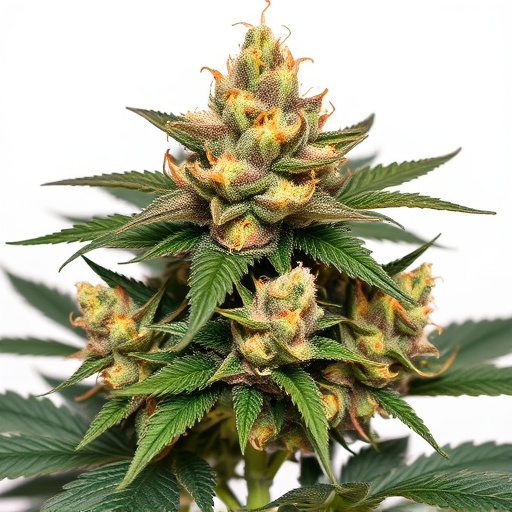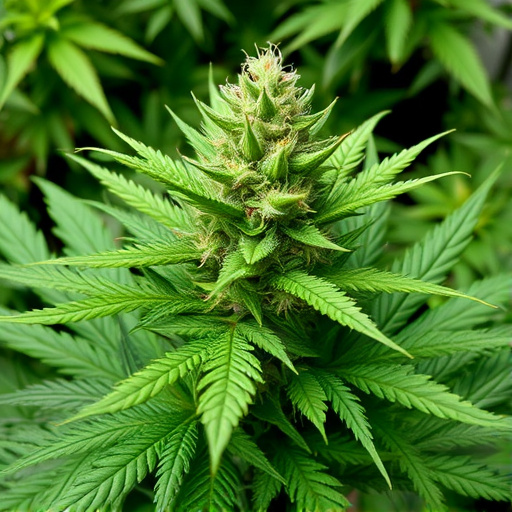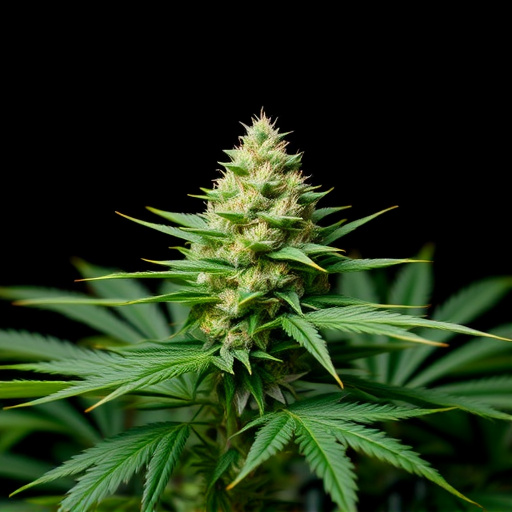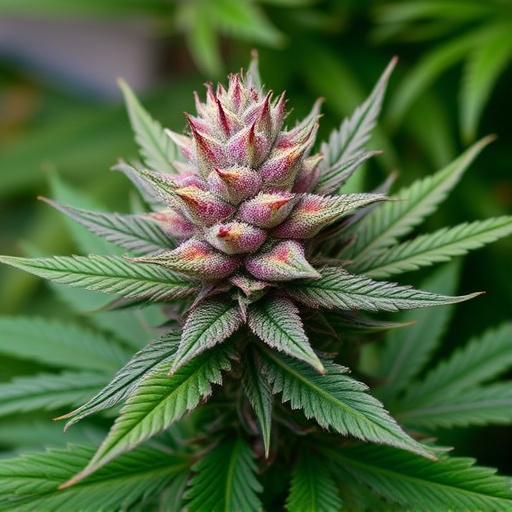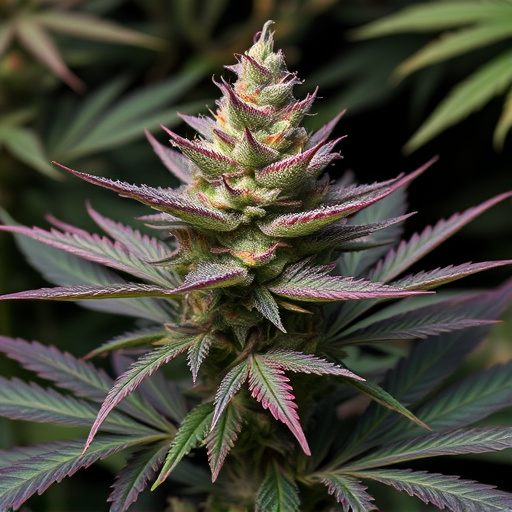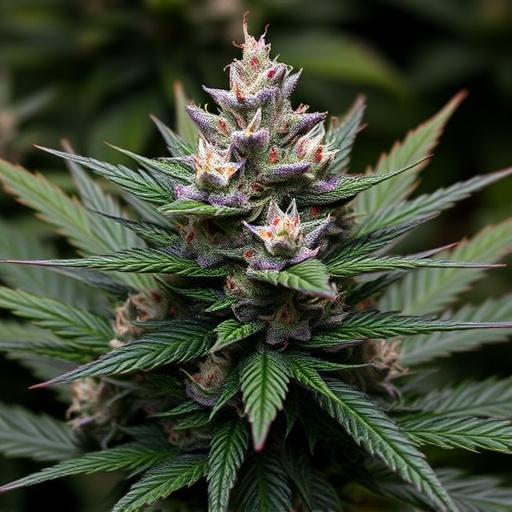Cannabis, with over 100 cannabinoids like THC and CBD, has a long history in therapy. Recent studies show potential for treating anxiety, depression, and PTSD. Classic cannabis strains, such as Indica (high THC) for calmness and Sativa (high CBD) for upliftment, are gaining attention. These strains interact with the endocannabinoid system to regulate mood and stress but may have risks like adverse effects or dependence. Future research should focus on specific cannabinoid profiles for conditions, individual variations, and safe use.
Can cannabis flower offer a natural approach to mental wellness? This question has sparked interest in the growing field of cannabis research. This article explores the potential benefits of cannabis for mental health, delving into its effects on various conditions and how specific classic cannabis strains may provide relief. We’ll discuss current findings, consider important factors, and examine future research directions to understand if cannabis can be a viable complementary therapy.
- Understanding Cannabis and Its Effects on Mental Health
- Exploring Classic Cannabis Strains for Specific Mental Health Conditions
- Potential Benefits, Considerations, and Future Research Directions
Understanding Cannabis and Its Effects on Mental Health
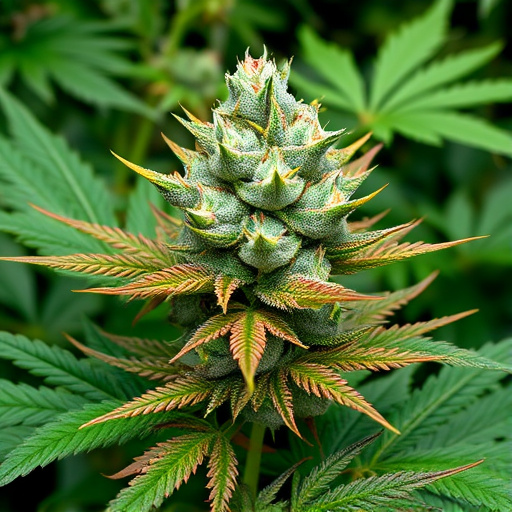
Cannabis has been used for centuries, with its therapeutic properties well documented in various cultures. The plant contains over 100 chemical compounds known as cannabinoids, the most notable being THC (tetrahydrocannabinol) and CBD (cannabidiol). These cannabinoids interact with our body’s endocannabinoid system, which plays a crucial role in maintaining mental health and overall well-being.
While classic cannabis strains are often associated with their psychoactive effects, inducing relaxation or euphoria, recent studies suggest that the plant can have a significant impact on mental health conditions. CBD, for instance, has shown promise in reducing anxiety, depression, and even post-traumatic stress disorder (PTSD). Certain classic cannabis strains known for their high CBD content are being explored as potential therapeutic options. Understanding how these compounds interact with our bodies is key to harnessing the benefits of cannabis for improving mental health.
Exploring Classic Cannabis Strains for Specific Mental Health Conditions
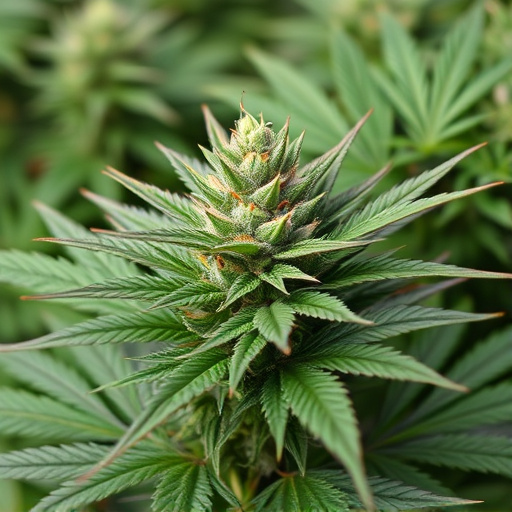
When it comes to mental health, exploring the potential benefits of cannabis flower has gained significant attention. One way to approach this is by delving into classic cannabis strains that have been cultivated over time for their specific therapeutic properties. For instance, Indica strains are renowned for their calming effects, making them a popular choice for individuals dealing with anxiety and insomnia. These strains typically contain higher levels of THC, the cannabinoid known for inducing relaxation and pain relief.
Sativa strains, on the other hand, offer a more uplifting and energizing experience. They are often recommended for patients suffering from depression or chronic stress. Classic Sativas tend to have higher concentrations of CBD, which has been linked to reducing symptoms of various mental health disorders without the psychoactive effects of THC. This makes them an intriguing option for those seeking alternative treatments without altering their mental state.
Potential Benefits, Considerations, and Future Research Directions
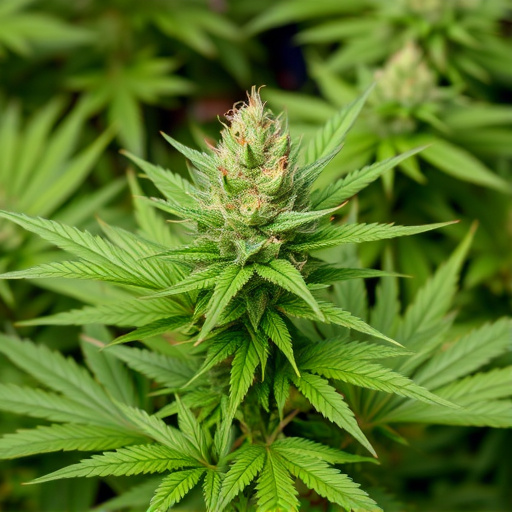
Cannabis has long been associated with potential mental health benefits, particularly when it comes to specific classic cannabis strains known for their balanced profiles. Studies suggest that certain compounds in cannabis, including cannabinoids and terpenes, may help alleviate symptoms of anxiety, depression, and post-traumatic stress disorder (PTSD). These compounds interact with the endocannabinoid system in the brain, which plays a role in regulating mood, memory, and stress response.
However, it’s essential to consider that the relationship between cannabis and mental health is complex. While some people may find relief through the use of classic cannabis strains or other cannabis-based products, others might experience adverse effects or dependence. Future research should focus on identifying specific cannabinoid profiles most beneficial for different mental health conditions, understanding individual variations in response, and exploring potential risks to ensure safe and effective use.
Cannabis flower’s potential to enhance mental health is a promising area of study, especially with the growing interest in natural remedies. While research is still evolving, exploring specific classic cannabis strains for tailored mental health support shows significant potential. As we navigate this rapidly expanding field, further research into diverse strain profiles and their unique effects will be crucial to unlocking cannabis’s therapeutic capabilities. By understanding the science behind these plants, we can foster a more informed approach to integrating cannabis as a complementary therapy in various mental health treatments.


